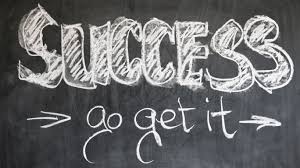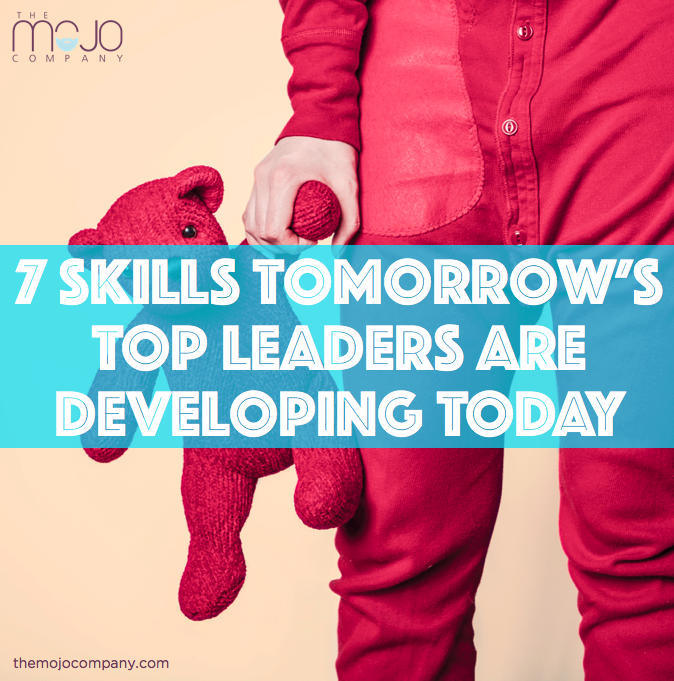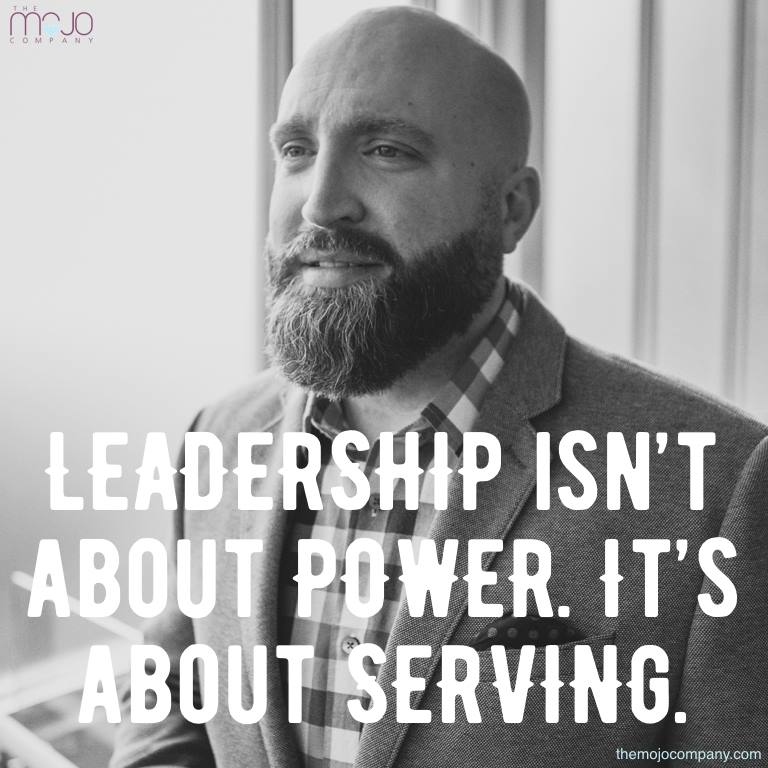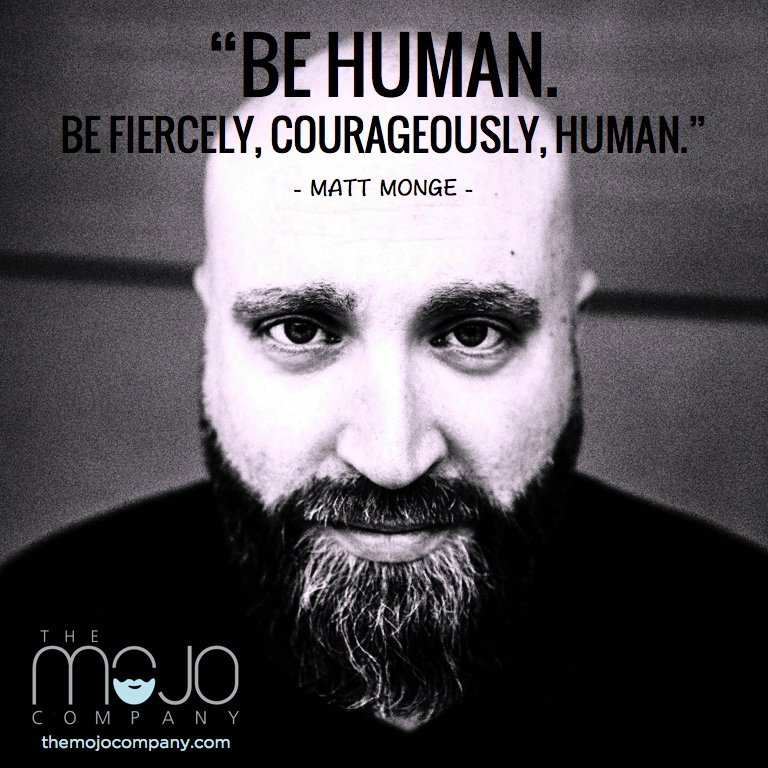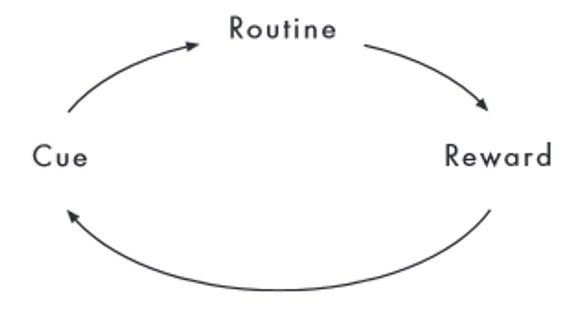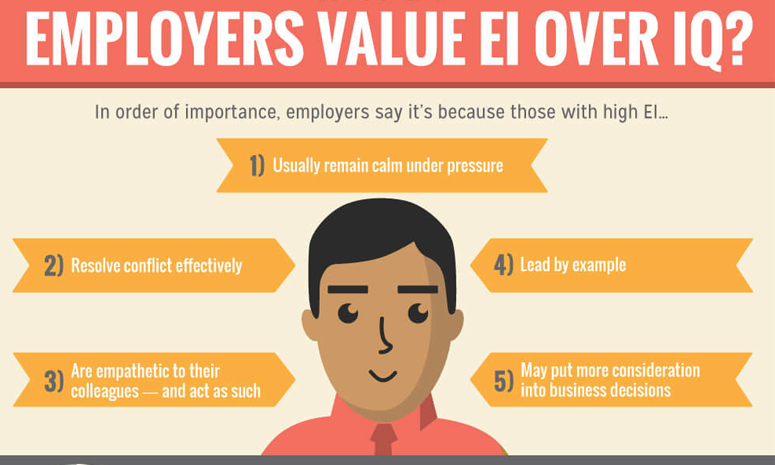 Photo Credit: UCreative
Photo Credit: UCreative
[From the Archives – I wrote before on Emotional Intelligence here, here, and here. Below you’ll find the summaries from those pieces.]
You can probably remember an encounter with someone who was so engaging and interesting that you hoped you would meet them again, or work with them some more, or even become their friend.
Below is a story of how I experienced emotional intelligence in a beautiful and transforming way.
Years ago, I worked for a beloved organization. In that work context, I’d had an idea of a particular needed next step. Even though it wasn’t a strength of mine to carry the ball on it, I saw such a need for it to happen that I floated it a couple of times to our leads.
It didn’t go anywhere…timing, not the right people in place…lots of variables.
Then, out of the blue, an announcement came down that we were going to run a pilot on that very idea. The woman leading the pilot was perfect for it. Enthusiastic, funny, bright, humble, and inclusive. Perfect.
I messaged her about how excited I was about the pilot and told her if I could be any help at all, just let me know.
Because of who she was (and maybe the timing…although I think it was just her), the project hummed along. Lots of others jumped in to help. I was so excited. Felt no need to push in but wanted to cheer-lead any way possible.
Then she wrote me this brief message – surprising and lovely – full of emotional intelligence. She said at that time she didn’t need more folks on the project, BUT she commended me and expressed her gratitude for my support. Just a message. A few lines.
It was just what I needed and I didn’t even know I needed it.
“Emotional intelligence (EI) is the ability to monitor one’s own and other people’s emotions, to discriminate between different emotions and label them appropriately, and to use emotional information to guide thinking and behavior.”
__________________________________________________________________________
The Little-Known Relationship Between Emotional Intelligence and Success – Shane Barker– rapid read with definition and characteristics of emotional intelligence.
__________________________________________________________________________
Remember this distinction: there are smart people and then there are emotionally intelligent people. If you don’t have a sense of the difference in these two, Paul Sohn posted an infographic (yay!) that gives an excellent description of emotional intelligence. There are a lot of smart people out there but what a joy when your boss, as smart as he may be, is also a great communicator with and appreciator of people. [Go back and click on that infographic – very helpful!]
Emotional Intelligence is a concept that’s been around for awhile now. Matt Monge’s article for The Mojo Company sparked my interest some time ago. He described 6 symptoms of leaders with low emotional intelligence.
Two of Monge’s points were: 1) Leaders with low emotional intelligence say “I’m sorry you feel that way” more than “I’m sorry,” and 2) Leaders with low emotional intelligence often blame the people they hurt for the situations leading to them being hurt.
Daniel Goleman has written several books on this topic including Emotional Intelligence: Why It Can Matter More Than Intelligence and Social Intelligence: The New Science of Human Relationships. The very cool thing about emotional intelligence is that it can be developed. The big dilemma is whether bosses or even teammates, not bothered by their impact on others, would buy into this relational skillset. Incorporating such concepts in personnel accountability metrics might provide some incentive. I’ve added graphics below that helped me further understand emotional intelligence.
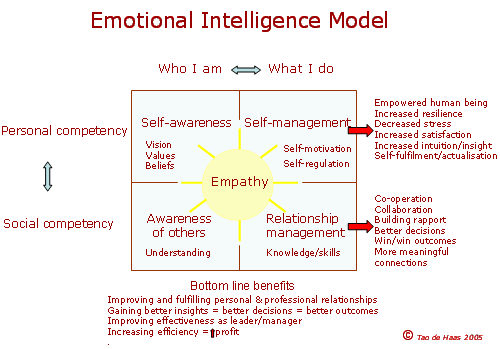 Photo Credit: Dollie Slager
Photo Credit: Dollie Slager
 Photo Credit: The King and Queen
Photo Credit: The King and Queen
___________________________________________________________________________
Even people with strong emotional intelligence can find themselves off-balance when in conflict with someone. Leadership writer Marcel Schwantes gives counsel for this in 7 Brilliant Things Emotionally Intelligent People Do When Their Buttons Are Pushed. Photo Credit: Wikimedia Commons
Photo Credit: Wikimedia Commons
Schwantes encourages us to respond rather than react in a conflict situation. His seven action points follow (read more of his article for his commentary on each one).
- Get perspective.
- Take a 6-second pause.
- Stay humble.
- Try empathy.
- Ask the most conflict-diffusing question. [“Are you ok?” What’s going on?”….what else would you think would diffuse the situation?]
- Speak from your authentic self.
- Be the first to reach out after conflict.
Don’t miss the brief video at the end of Schwantes’ piece on 3 Simple Questions to Improve Your Emotional Intelligence.
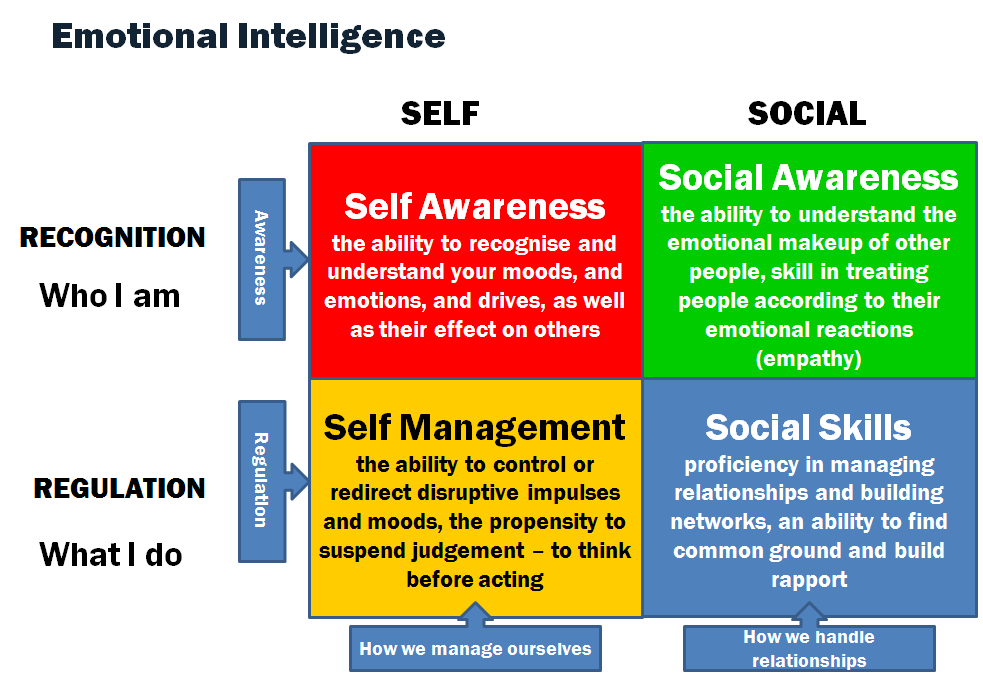 Photo Credit: Self Study History
Photo Credit: Self Study History
I hope you’re surrounded by emotionally intelligent people. Maybe you’re an “EI” rockstar yourself. For me, that woman above, piloting the project, had my respect from the beginning, but because she responded to me in such an honoring, genuinely considerate way, she also has my complete support and more.
Do you have any emotional intelligence stories? Please comment below. We can always use stories of great bosses and coworkers to inspire and spur us on.
___________________________________________________________________________
Try These Two Smart Techniques to Help You Master Your Emotions – Lisa Feldman Barrett
How Emotional Intelligence Boosts Your Endurance – Alex Hutchinson
___________________________________________________________________________
Bonus: Resources for Raising Our Children to Be Emotionally Intelligent
Research Shows Reading Improves Kids’ Emotional Intelligence and Increases Empathy – Katie Priske
This Is How to Raise Emotionally Intelligent Kids: 5 Secrets From Research – Eric Barker
Chores Lead to Happy Children. So Why Do So Few Parents Require Them? – Annie Holmquist – OK…this doesn’t really have to do with emotional intelligence but it fits in the mix of raising kids well.




















